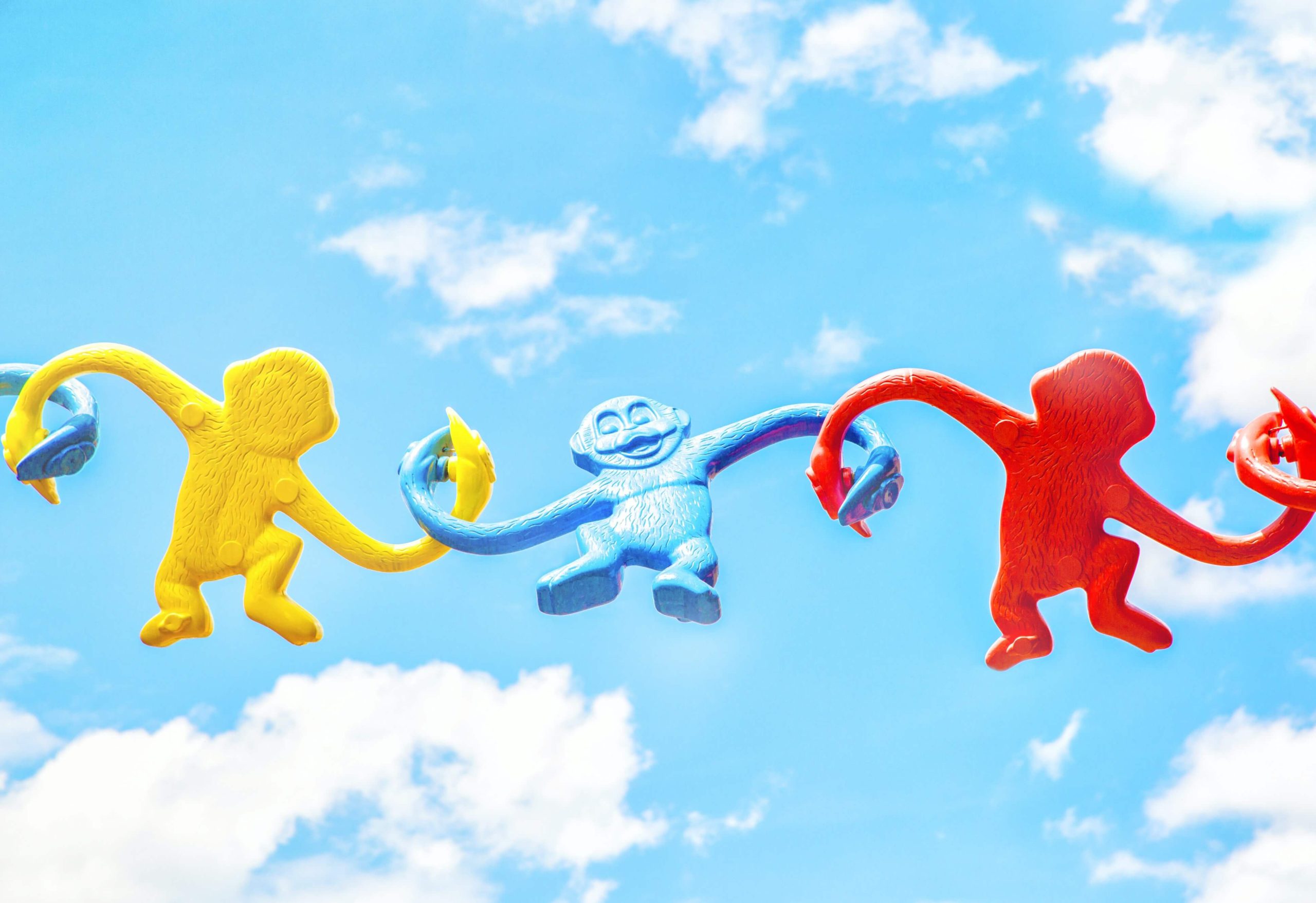Some people are exceptionally witty or humorous in the way they communicate. This is very relevant in our lives, because communication is inevitable in work, school, friendships, family, and other communities. Within these communities, a sense of humor creates an environment where people can talk at ease, share good times, and build positive relationships. Moreover, stress relief through humor proves effective in relationships and improving mental health. Stress relief humor even plays a major role in communication. How can we use humor and comedy as a coping mechanism through our difficulties in life?
Contents
4 Ways to Cope Through Stress Relief Humor

Humor is a word with a diverse concept that can be viewed in a myriad of ways.
Humor is an elusive and multifaceted concept that includes wit, laughter, joking, comedy, kidding, teasing, clowning, mimicking, satire, and freak enjoyment of the imperfect.
Robinson, V.M. (1978), University of Manchester
Humor, the capacity to express or perceive what’s funny, is both a source of entertainment and a means of coping with difficult or awkward situations and stressful events.
Martin, A. (2006), University of Western Ontario
As described by experts in the field above, humor refers to expression and communication we regard as funny or amusing. Furthermore, if we delve deeper, humor can be classified into four main categories: aggressive humor, affiliative humor, self-defeating humor, and self-enhancing humor. Each of these types of humor plays a different role in our coping mechanism.

1. Aggressive Humor
Aggressive humor is typically aimed towards others, primarily through sarcasm and teasing. This category of humor may also include tongue-in-cheek, satire, dark humor, and ridicule, all of which have cathartic effects or induce a sense of superiority. While it can come off as negative because it attacks or slanders others, it can definitely work if there’s a strong psychological bond. To someone close, it could send an indirect message that says, “I feel close enough to make fun of you”. This can actually be comforting, especially to a good friend. Of course, depending on how and when you use this type of humor, it may hurt others, so proceed with caution.

2. Affiliative Humor
Affiliative humor refers to puns, wordplay, and other forms of humor that are mainly playful and trivial. Humor can be playful when the motivation is to create a jovial atmosphere, entertain, or when the subject stays light-hearted. Affiliative humor can effectively lighten the mood when we need a change. Unlike aggressive humor, anyone can use affiliative humor regardless of the degree of relationship.

3. Self-Defeating Humor
Self-defeating humor refers to the type of self-deprecating jokes in which we reprimand ourselves through belittling, undervaluing, or excessive modesty. Above all, this kind of humor has the potential to make positive impressions and build smooth relationships. However, excessive self-deprecation risks the development of low self-esteem and diminished happiness in the person making the jokes. At a glance, it may seem beneficial for you to pose as the main target of humor, because it does not hurt anyone, nor would it risk your relationships. However, we must keep in mind that excessive self-mockery can be destructive, and we should be careful how we use it.

4. Self-Enhancing Humor
Self-enhancing humor is expressed through self-objectification, usually targeting yourself to create humor in a good-natured way. For example, laughing at your own failure is good for health because it can turn potential stress into a positive factor. At a glance, it may sound similar to self-defeating humor, but it differs in the sense that it doesn’t attack self-esteem. Let’s look at an example of humor from the perspective of a person who is not confident about their appearance.
・Self-defeating humor: “I’ve never been complimented by anyone before, but yesterday I went to the hospital with a sprained ankle, and the doctor said, “The arch of your foot is exquisite.” The only thing about me worth complimenting is the arch of my foot!”
・Self-enhancing humor: “I’ve never been complimented by anyone before, but yesterday I went to the hospital with a sprained ankle, and the doctor said, “The arch of your foot is exquisite.” That was my first ever compliment about my foot! I’m glad I sprained my ankle.”
As you can see, self-enhancing humor takes a positive outlook overall.
Self-enhancing humor also requires a certain level of calmness to view things objectively and to gain further insight. This form of stress relief humor also prevents us from losing our minds from hopelessness, difficulties, and failure. Therefore, this kind of humor restores a sense of normalcy and is the most effective form of comedy as a coping mechanism.
Comedy as a Coping Mechanism in Stress Relief Humor

As you can see, there are many different types of humor, but not everyone can use humor effectively. Some people may find it difficult to come up with a witty response on the spot. If so, just engaging in a humorous conversation, environment, or event is sufficient to help us relax and relieve stress.
Many studies indicate that humor is effective in stress relief. For example, nurses at a hospital found that they can alleviate symptoms of delirium (a mental disorder with delusions and hallucinations) by communicating with the patient through humorous gestures. Similarly, humor and comedy have been drawing attention as a coping mechanisms to manage stress and regulate our mental health. Thus, we can simply say or act upon jokes to lighten a situation, reduce stress, and combat depression.

For some, humor is used as an ice-breaker to relieve tension on the first encounter with someone; and for others, simply laughing together with close friends and family can be effective in relieving stress. In other words, there are many different ways we can share what we find humorous, depending on our personalities and culture.
Find Humor in Life Every Day
Laughter is an essential element in maintaining our mental health every day. Moreover, medically speaking, laughter boosts the immune system and can even help prevent physical ailments, including cancer.
Laughter and humor brighten up our lives. Therefore, let’s try to incorporate more humor in our lives – make casual jokes out of your own mistakes, come up with a funny analogy, or try to engage with someone who has a good sense of humor. In this way, regular exposure to humor and laughter will surely help relieve some stress!

If you’re looking for more tips on how to care for your mental health, check out some of our past blog posts!
→ Looking to improve your mental health? Try the SELFMIND app FREE for a week!
References:
Hayama, D., & Sakurai, S. (2005). A Review of the Moderating Effect of Humor on Stress. Tsukuba Psychological Research (30), 87-97
Ishihara, S. (2015). The Effects of Humor Coping with Interpersonal Stress on Psychological Health. Bulletin of Human Science (36), 67-77.
Kunugimoto, N., & Yamasaki, M. (2011). The Effect of Humor Coping with Interpersonal Stress on the Relationship Between Cynical Hostility, Conscious Defensiveness, and Depression. The Japanese Journal of Psychology 82(1), 9-15. doi: 10.4992/jjpsy.82.9
Martin, R. A. (2006). The Psychology of Humor: An Integrative Approach (1st ed.). London, United Kingdom: Academic Press.
Miyashiro, K., & Tomita, M. (2019). The Uses of Aggressive Humor for the Relations with their Friends in College Students. Japanese Cognitive Science Society: 36th Annual Proceedings, 2-25.
Robinson, V.M. (1978). Humor in Nursing. In C. E. Carlson & B. Blackwell (Authors), Behavioral Concepts and Nursing Intervention (2nd ed.) (pp. 191-210). Philadelphia, Pennsylvania: Lippincott.
Tsukawaki, R., Fukada, H., & Higuchi, M. (2011). Process Effects of Expression of Humor on Anxiety and Depression. The Japanese Journal of Experimental Social Psychology, 51(1), 43-51. doi: 10.2130/jjesp.51.43



